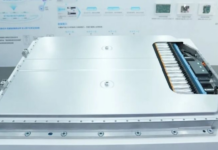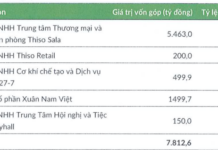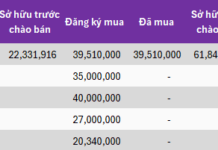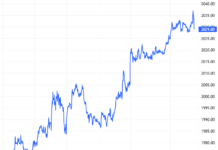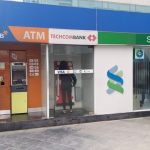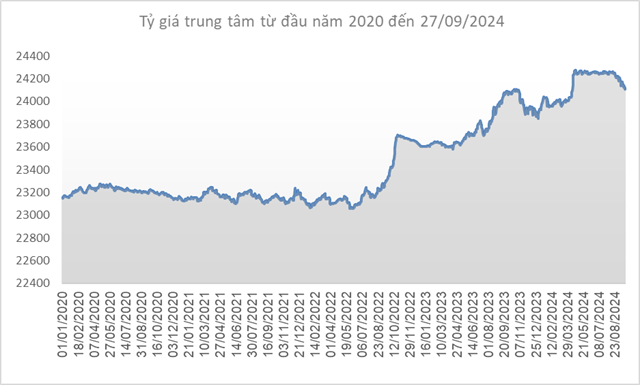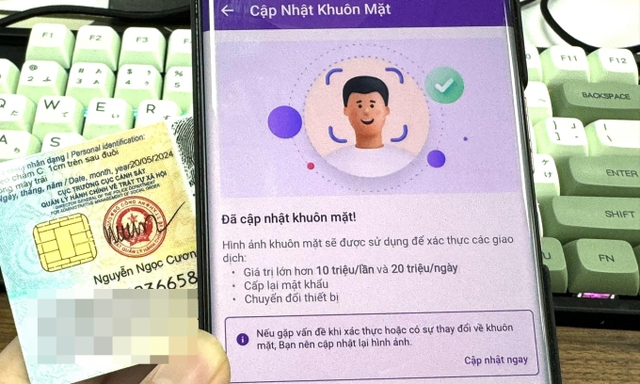
Illustration
According to Decision No. 2345/QD-NHNN of the State Bank of Vietnam, from July 1, 2024, customers of banks will be required to use facial biometrics to authenticate themselves when conducting certain online transactions. This means that customers’ facial data must match the data stored in the chip of their citizen identification cards. This measure aims to enhance transaction security and protect customers from fraud and theft.
Decision No. 2345/QD-NHNN specifies that biometric authentication will be mandatory for transactions over VND 10 million, cumulative daily transactions exceeding VND 20 million, and the first-time use of mobile banking applications or transactions made on a different device than the one used for the last mobile banking transaction.
In preparation for this new regulation, banks, e-wallets, and customers are racing to update their biometric data. Users can easily complete this process on their smartphones by following three simple steps: taking photos of the front and back of their chip-embedded citizen ID cards, scanning the NFC on the ID card, and finally, facial scanning and OTP authentication.
While most users have reported a smooth and quick process, some have encountered difficulties, especially during the NFC scanning step, as shared on technology forums.
Major commercial banks, including VietinBank, Vietcombank, BIDV, Agribank, ACB, and MSB, have already achieved high rates of biometric authentication enrollment among their customers. TPBank, notably, implemented Decision 2345 in its entirety for all customers as early as June 20, 2024, well ahead of the effective date. Since March 2024, all TPBank staff have been utilizing biometric data for transaction authentication, ensuring a stable and accurate operation before rolling it out to their over 12 million customers.
Techcombank has also prioritized implementing biometric authentication for its customers’ digital transactions, as per Decision 2345. By July 1, 2024, the bank plans to introduce biometric authentication for online payments and bank card transactions. MSB, on the other hand, started collecting customers’ biometric data through chip-embedded citizen ID cards on its MSB mBank application and at its transaction counters from June 6, 2024.
SHB, with over 92% of its transactions conducted through digital channels, recognizes the urgency of implementing Decision 2345 to protect its customers during online transactions. The bank has been actively updating and supplementing biometric data from chip-enabled citizen ID cards, cross-referencing it with the database of the Ministry of Public Security.
At a recent conference organized by the Vietnam Banks Association to discuss the implementation of Decision 2345, Mr. Tran Van Tan, Vice Chairman of the Association, acknowledged that some credit institutions are facing challenges and obstacles in data processing and implementation costs. He noted that while banks are expediting the collection of biometric data from customers, the process is currently slow as customers are not yet fully aware of the new regulation and may be hesitant to provide their data.
Mr. Tan predicted a possible surge in the number of customers updating their biometric data on July 1, which could impact the system for verifying information from the citizen ID card database and affect customers’ banking experience.
Mr. Tran Cong Quynh Lan, Chairman of the VNBA Technology Committee, added that the challenges faced by credit institutions in implementing Decision 2345 are mainly technical. The use of NFC technology to read data from chip-embedded ID cards has been particularly difficult due to many customers’ devices not supporting NFC, resulting in a low success rate. As a solution, banks can offer alternative authentication methods, such as in-branch verification or using VNeID level 2 authentication.
Mr. Lan also pointed out the lack of technology standards for biometric authentication solutions in the market, leading to inconsistencies in customer experience across different organizations. Additionally, there are concerns related to implementation costs, customer experience, and timelines.
Deputy Colonel Vu Van Tan, Deputy Director of the Police Administration Management Department for Order and Social Security (Ministry of Public Security), assured that the National Population Database Center has been working closely with banks to protect the assets of citizens. With the foundation of citizen ID cards, electronic identification, and the implementation of biometrics, the process should be smooth. He requested that banks that have signed agreements with the National Population Database Center and the State Bank be prepared for any issues that may arise after July 1.
Specifically, in the initial phase, response teams should be established at the National Population Database Center and banks, equipped with the necessary tools for immediate customer verification. The National Population Database Center is committed to providing the most effective support to banks to ensure the successful implementation of Decision 2345.
Tips for protecting your bank account during Tet to avoid being left empty-handed
To avoid hackers, experts recommend users to secure multiple layers of credit card information. Switching to biometric authentication will provide a safer way to protect online card information.
Surge in QR Payments Leads to Bank ATM Closures
By the end of January 2024, the market witnessed a decrease of 1.70% in the number of ATMs compared to the same period in 2023, with a total of 20,986 ATMs. On the other hand, there was a significant increase of 32.68% in the number of POS machines, reaching a total of 554,580 POS. The month of January 2024 also saw a remarkable surge in QR code transactions, with a staggering increase of 892.95% in terms of quantity and an impressive 1,062.01% in terms of value.
VMG eID-VMG Bio-2345: The Next-Gen Solution for Bank Account Protection
Despite constant warnings from banks, regulators, and the media, many people still fall prey to sophisticated online scams and lose their hard-earned money. This problem is becoming increasingly prevalent, and it is crucial to find effective solutions to protect citizens in the digital age.

